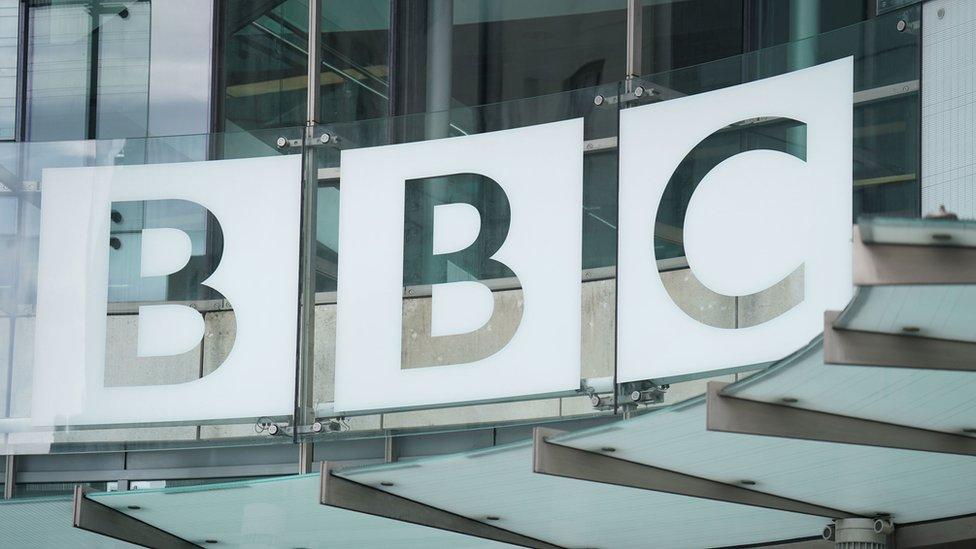Why isn't BBC presenter being named by the media?
- Published
Watch: The BBC presenter story in 75 seconds
For days, two questions have been burning in relation to the allegations concerning a BBC star: do they amount to a crime, and why isn't he being named by journalists?
Let's take each in turn.
If the presenter obtained sexually explicit images of the young person when they were under 18 years old, that is a matter for investigation as a possible criminal offence.
The age of consent is 16, but a person under the age of 18 is not an adult. The law says they cannot consent to taking part in "indecent photographs".
If the mother's account to the Sun, external is true, you don't need to be a lawyer to see the potential for a criminal investigation.
The maximum sentence for a crime under the Protection of Children Act 1978 is 10 years. In practice, most sentences are far shorter because each case comes down to the specific facts of the case.
Why is the media not naming the man?
The law protects journalists so they can unmask "the fraudulent and the scandalous", to quote one famous case.
But in practice, doing so is a complicated newsroom equation that criss-crosses between editorial ethics and the law.
Here's the problem: this story is more questions than answers.
The Sun says it has seen "evidence" that supports the concerns of the parents.
But on Monday night lawyers representing the young person said the mother's account was "rubbish" and the newspaper's reporting "totally wrong".
Then the mother told the newspaper she stood by her claims.
And it's in this claim and counter-claim space that the law bites.
The first is a right to privacy.
The law recognises that every one of us has a "reasonable expectation" of privacy.
Some things in our lives are nobody else's business, unless there is an over-riding public interest in revealing them.
In the Sun's latest story, published on Monday night, the young person's step father is quoted as saying police had told him that whatever had happened "wasn't illegal". We don't know exactly which police this relates to and whether it was a formal decision not to investigate.
So if journalists don't have hard evidence of wrongdoing by the BBC presenter, what is the case for breaching their privacy?
Since a major Supreme Court ruling in 2022, that right to privacy includes people who are under investigation by a law enforcement agency - meaning the stage before they have been formally charged with a crime and sent to the courts.
The complications don't end there. Lawyers for the young person have said their client too is suffering an invasion of privacy.
And if they are right about that, their client could try to sue if they were named.
Reputational damage
The second challenge is the separate law of defamation. This protects any individual's reputation from the massive harm caused by lies.
Anyone speculating on social media about the identity of the presenter could be sued for causing this harm and find themselves financially ruined.
An innuendo can be just as catastrophic to reputation - as Sally Bercow, wife of the then Speaker of the House of Commons, found out to her cost 10 years ago.
If a news organisation chooses not to name the presenter, they could cause damage to a similar colleague, thanks to a case that leaves bona fide trained journalists with the shivers.
Back in 1986, a newspaper alleged that an unnamed detective in Banbury CID had raped a woman.
The unit was so small other members of the unit sued, saying everyone who knew of them would think they were the guilty party.
Not all claims made against people in the public eye are true.
Sometimes a complainant has an ulterior motive or, sadly, is unwell.
That's not to suggest allegations should be brushed to one side and not taken seriously.
On the contrary. It becomes all the more important to work out the truth.
The Metropolitan Police are now involved. They have said they are assessing information given to them by the BBC and working to establish "whether there is evidence of a criminal offence".
Although they have not yet launched a formal investigation.
So if journalists, like the police, are short of actual facts, the legal risks they face in naming anyone in this story are now huge.
Related topics
- Published9 July 2023
